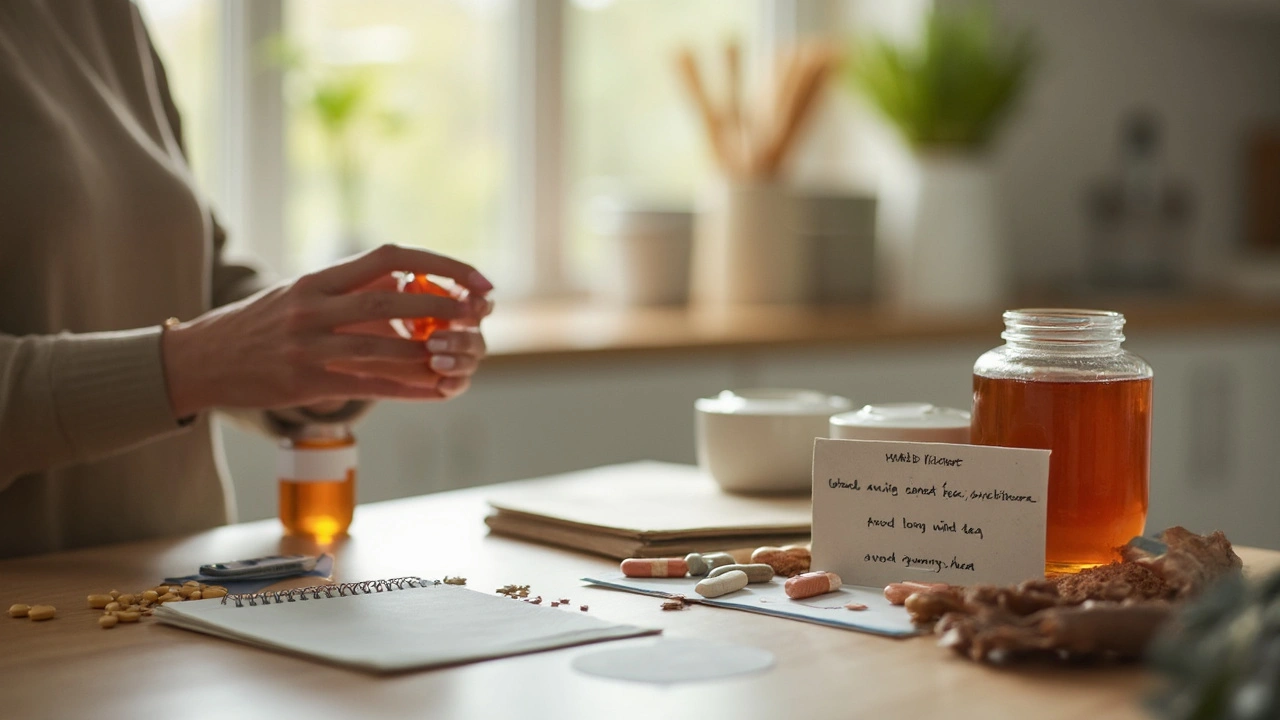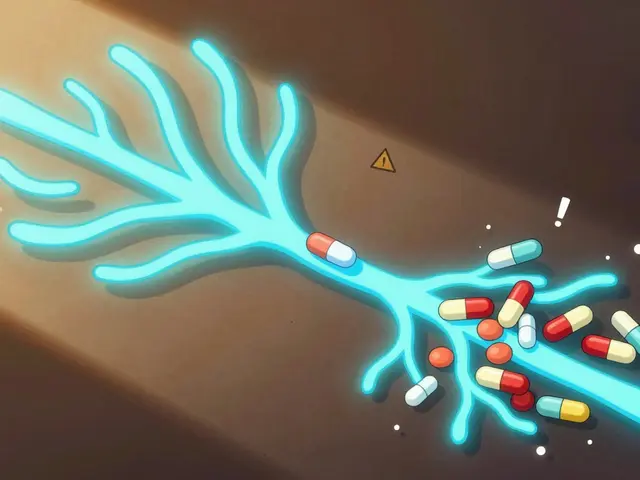Alpelisib interactions: common drug conflicts and safety tips
Taking alpelisib (Piqray) brings clear benefits for certain breast cancers — but it also changes how your body handles other medicines and raises risks like high blood sugar. This page covers the interactions you’re most likely to run into, what to avoid, and simple things you can do to stay safe while on treatment.
Common drugs and supplements to watch
Some medications can change alpelisib levels or make side effects worse. Examples to mention to your doctor or pharmacist include:
- Strong antifungals and some antibiotics (for example, ketoconazole or clarithromycin) — they can raise the levels of many cancer drugs.
- Strong enzyme inducers like rifampin, phenytoin, or St. John's wort — these may lower alpelisib exposure and reduce its effect.
- Steroids and other medicines that raise blood sugar — alpelisib commonly causes hyperglycemia, so adding drugs that increase glucose can make things worse.
- Common supplements and foods: avoid St. John’s wort and tell your team about grapefruit or grapefruit juice since they can affect drug breakdown.
Also mention any over-the-counter pain relievers, herbal products, or topical medicines — even creams and eye drops can matter. Your oncology team will check each item against your treatment.
How interactions are managed and what you should do
Doctors monitor patients on alpelisib closely. Before starting, you’ll usually get baseline blood tests (fasting glucose, A1c, and liver tests). During treatment they often check blood sugar frequently—sometimes weekly at first—and adjust diabetes medicines if needed.
If you develop high blood sugar, common steps are adding or increasing diabetes medications (metformin is often used first) or temporarily holding or lowering the alpelisib dose. For rashes or severe side effects, dose interruptions or topical treatments may be recommended.
Practical tips you can use right away:
- Keep an updated list of every prescription, OTC drug, supplement, and herbal product you take. Share it at every visit.
- Don’t start or stop medications (including herbal remedies) without asking your oncologist or pharmacist.
- Monitor symptoms: watch for increased thirst, frequent urination, sudden skin rash, or persistent diarrhea and report them fast.
- Use reliable contraception if applicable; alpelisib can harm a fetus.
If you’re unsure whether a specific drug or supplement interacts with alpelisib, call your oncology clinic or pharmacist. They’ll check risks and suggest safe alternatives or monitoring plans. Small checks now prevent big problems later.
Have your next appointment coming up? Bring your full medication list and ask which specific interactions you should avoid. That short conversation can keep your treatment on track and safer for you.

Alpelisib Drug Interactions and Precautions: Smart Guidance for Safe Use
Learn everything you need to know about alpelisib drug interactions and precautions. This guide covers which medications and foods can cause problems, special precautions to take, and practical tips for safer treatment. We'll also share some lesser-known facts about alpelisib you won't want to miss. If you're starting this medication or caring for someone who is, grab the key details here before your next appointment.
read more
